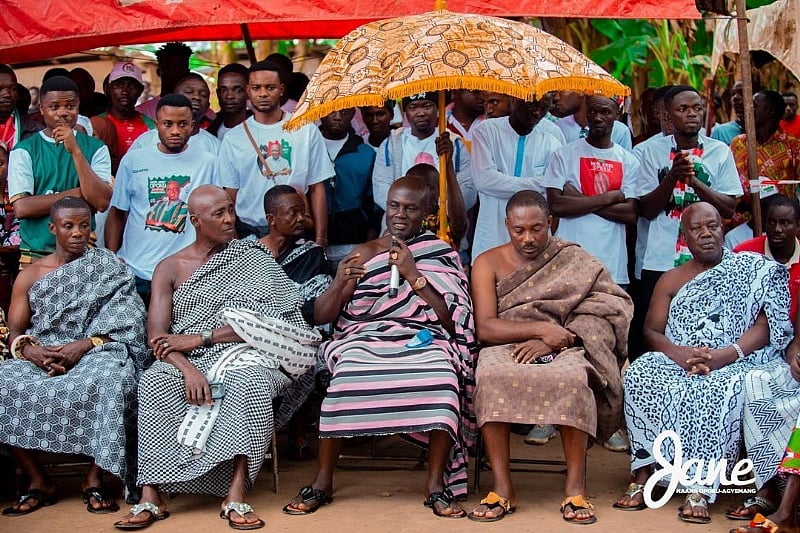Nana Okyere Siabour III, the Chief of Asifufuo, has recently highlighted a notable shift in the National Democratic Congress (NDC), particularly concerning its appeal to the youth of Ghana. During a community engagement event with the NDC’s vice-presidential candidate, Prof. Jane Naana Opoku-Agyemang, he emphasized that the party’s pro-youth policies have significantly transformed its demographic support base. Previously, the NDC was characterized by a reliance on older supporters; however, Siabour remarked that the party is now increasingly attractive to younger voters. His observations come as part of a broader campaign tour in the Ahafo Region, as the NDC intensifies its outreach ahead of the general elections.
Nana Okyere Siabour pointed out that Ghanaians have become more discerning in their political affiliations, often comparing the major political parties’ policies and actions. He asserted that the NDC prioritizes the interests of the populace, setting it apart from its counterpart. He specifically mentioned key initiatives such as the 24-Hour Economy, the Big Push, and the No Fee Stress policies, which resonate with the youth. These initiatives are perceived as vital in addressing the pressing need for employment opportunities among young Ghanaians, who are eager for tangible support and guidance in their professional journeys.
A significant observation made by Siabour is the once-diminished visibility of youth support for the NDC. He reminisced about a time when it was rare to witness young individuals wearing NDC paraphernalia or actively engaging with the party. This perspective has undergone a profound change, as he noted that the youth have increasingly embraced the party, marking a transformation in its grassroots dynamics. This newfound connection between young voters and the NDC signifies a revitalization that could alter the political landscape in the forthcoming elections.
Additionally, Siabour addressed the notion of breaking the cycle of political transitions characterized by alternating party governance, commonly referred to as the “break the 8” mantra. He expressed confidence that if the next NDC government fulfills its promises to the citizens, the party would be well-positioned to win successive elections, thereby breaking this cycle. This assertion reflects a strategic vision for the party’s future, emphasizing governance based on accountability and fulfilling electoral commitments as the foundation for sustained political success.
In a complementary message, Prof. Jane Naana Opoku-Agyemang reaffirmed the NDC’s commitment to improving the living conditions of all Ghanaians. She urged voters to put their support behind the NDC’s presidential candidate, Mr. John Dramani Mahama, and the party’s parliamentary candidates in the upcoming elections. Her call to action resonates with the growing youth base that Siabour described, appealing to their aspirations and desire for progressive change within the country.
Overall, the dialogue at the community engagement event underscores the evolving relationship between the NDC and the youth of Ghana. It illustrates the party’s efforts to adapt its policies to the aspirations of the younger demographic, signaling a shift in political allegiance and possibility for electoral success. As the general elections approach, the NDC seems poised to capitalize on its enhanced appeal among young voters, presenting a platform that prioritizes their needs and expectations for the future.














